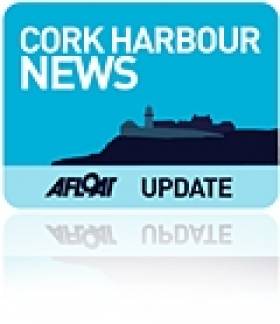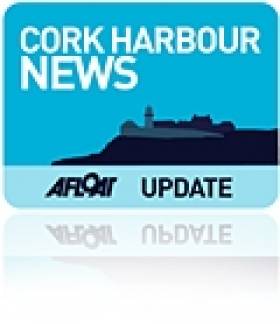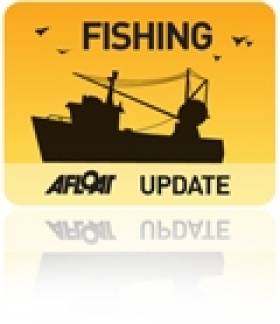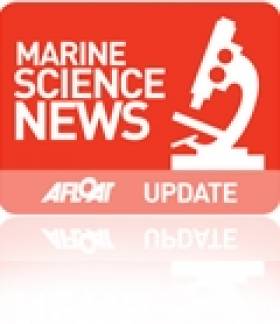Displaying items by tag: European Commission
Questions for Minister over Haulbowline Dump
Minister for the Environment Phil Hogan is set to be quizzed over plans to deal with the toxic waste site on Haulbowline island in Cork Harbour, the Irish Examiner reports.
As previously reported on Afloat.ie, two weeks ago the European Commission gave the Government three months to take action over the the former steel works, which contains an estimated 500,000 tonnes of toxic metal waste and cancer-causing materials.
The minister will meet Cork County Council on 9 May after an official request to discuss the matter was made by Cobh independent councillor Seán O'Connor.
Labour councillor John Mulvihill said locals would not be happy until the waste was removed and a study conducted to examine if there was any link between the site and high cancer rates in the area.
The Irish Examiner has more on the story HERE. See also our story Hot site in the harbour.
'Three Months to Clean Up Haulbowline' Says Europe
The Government has three months to start cleaning the toxic waste site in Haulbowline or risk court action by the European Commission, the Irish Examiner reports.
The site at the former Irish Steel plant contains an estimated 500,000 tonnes of waste, including toxic heavy metals and cancer causing materials, and has been blamed for the area's notoriety in having one of the highest cancer rates in Ireland.
Two petitions from local groups totalling 5,500 signatures were presented to the European Parliament's petitions committee in Brussels on Wednesday, according to The Irish Times.
Mary O'Leary, chair of the Cork Harbour Alliance for a Safe Environment (Chase), outlined to the committe that in spite of four reports between 1998 and 2005 highlighting the dangers of contamination from the site, the Irish State has failed to regulate it or take clean-up action.
Petitions committee member Jean-Francoise Brakland said he "fully agreed" with locals' concerns over the "dangerous mess".
He also commended Environment Minister Phil Hogan for understanding "the difficulties and the challenges of environmental implementation" but cautioned that "we are not going to wait for the next 10 years".
Brakland promised that if no real action was taken on Haulbowline after three months, the commitee would seek a court judgement againt the State.
The Irish Examiner has more on the story HERE.
European Commission Penalise Spanish for Over-fishing
In a move to protect dwindling fish stocks, the European Commission recently took decisive action by significantly reducing Spain's mackerel quotas over the next few years as a result of over-fishing. This over-fishing of mackerel by the Spanish has been of major concern to the Irish fishing industry and was brought to the attention of the Commission by the Sea-Fisheries Protection Authority (SFPA) and other bodies.
Spanish fishermen landed almost twice as much mackerel in 2010 from the Cantabrian Sea, in the southern part of the Bay of Biscay, as they were permitted. Through their investigations, the European Commission discovered that the mackerel catch exceeded Spain's quota in the year 2010 by 19,621 tonnes. The European Commission has now passed a regulation reducing Spain's future quotas to account for the excess catches. Spain is obliged, in the period between 2011 and 2015, to return twice the amount of mackerel wrongfully caught.
In order to help combat over-fishing the SFPA operates a round the clock monitoring and surveillance programme to ensure the effective control of fish catches and landings. To promote a culture of compliance with National and EU legislation, landings by Irish, EU and Third Country vessels are inspected by the SFPA in Irish ports. Sea-Fisheries Protection Officers engage in a range of at-sea inspection programmes including both inshore and offshore patrols in conjunction with the Naval Service and Joint inspection patrols with other Member States operating in Irish waters and in those of other Member States.
The SFPA will work with Member States and with the Community Fisheries Control Agency (CFCA) based in Vigo, Spain, when a specific control and inspection programme for pelagic fisheries in Western Waters of the North East Atlantic is established - this is expected to be adopted in the near future. This will allow for the co-ordination of joint control, inspection and surveillance activities by Member States for these pelagic fisheries.
Peter Whelan, Chairman of the SFPA said: "The recent decision by the EU to impose sanctions on Spain for over-fishing and to protect the valuable mackerel fishery is significant. There is a need for all Member States to work together and to comply with the Common Fisheries Policy's rules in order to ensure the sustainable development of fisheries. The role of the SFPA supports profitable, sustainable, managed fisheries at a time when the fishing industry faces many challenges. Effective monitoring and control systems safe-guards the good reputation of Irish food producers in the international marketplace and protects Irish taxpayer from the threat of large fines being imposed when non-compliances with the Common Fisheries Policy are encountered. The SFPA will continue with our aim of working with other Member States to promote a uniform standard of monitoring, control and surveillance."
IWT Welcomes EU Ban on Fish Discards
The Irish Wildlife Trust has welcomed the proposed EU ban on discarding fish as part of the Common Fisheries Policy.
The organisation said it was a "vital step" towards "restoring the ecological balance in Irish seas".
IWT chairman Pádraic Fogarty said: “Discarding is tremendously wasteful and is causing untold damage to our marine ecosystems."
EU fisheries commissioner Maria Damanaki has described the practice of discarding as “unethical, a waste of natural resources and a waste of fishermen’s effort.”
The proposals to ban discards have come after a high-profile campaign against the practice of fishermen dumping dead fish, through which it emerged that half of all fish caught in the North Sea are thrown back.
Europe Seeks Public Input on Atlantic Ocean
The European Commission invites on-line public input to explore how the Integrated Maritime Policy (IMP: 2007) could be implemented in the European Atlantic Area.
In the context of the IMP-2007, the Commission is developing strategic approaches to Regional Sea Basins where there is a demand and a perspective of clear value added. Regional (Sea Basin) Strategies have been completed for the Baltic Sea, the Arctic, the Mediterranean and are at a planning stage for the North Sea.
The Commission now invites interested parties in the Atlantic region to input to the development of an Atlantic Strategy.
Such a Strategy would define common priorities; improve regional governance; identify opportunities for smart economic growth and for clustering, synergies and economics of scale. A Regional Strategy would also better focus future European Funding Programmes (e.g. Structural, Regional, Research, Innovation & Competitiveness, etc).
Target Groups: Member States, regional and local authorities, inter-governmental and non-governmental bodies, public organisations, enterprises, civil society and the general public
Contributions may be submitted by using an online questionnaire.
http://ec.europa.eu/fisheries/partners/consultations/atlantic_ocean/index_en.htm


































































